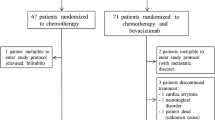Abstract
In order to investigate the relationship between intratumoral vasculature and progression of gastric carcinomas and between vessel counts and survival of patients with non-early gastric carcinoma, we counted the intratumoral microvessels and compared their numbers with clinicopathological parameters, as well as with the patients' survival. Microvessels were stained with anti-CD34 monoclonal antibody before counting by microscopy (x200). In a group of 181 patients who had undergone tumour resection and were followed for more than 24 months the vessel counts for 83 patients with stage IV disease were significantly higher than those for patients with any other stage of disease. Among various clinicopathological variables, haematogenous metastasis, lymph node metastasis, peritoneal metastasis, stage IV disease and non-curative resection were more frequent in the patients with highly vascularized tumours (intratumoral vessel count > 155) than in those with less vascularized tumours. As a classification of stage IV disease such as haematogenous or peritoneal metastasis generally indicates non-curative resection, it can be considered that the development of stage IV disease is associated with the increase in tumour angiogenesis. Both univariate and multivariate analyses showed that the intratumoral vessel count was significantly predictive of overall survival, when tested as either a continuous or dichotomous variable. Cox hazards model analysis showed that the vessel count was one of the significant and independent prognostic variables. Patients with highly vascularized tumours were significantly more likely to die than those with less vascularized tumours. Assessment of tumour vasculature may therefore be important, not only for its prognostic value, but also as it may help to predict responses to angiogenesis-inhibiting agents.
This is a preview of subscription content, access via your institution
Access options
Subscribe to this journal
Receive 24 print issues and online access
$259.00 per year
only $10.79 per issue
Buy this article
- Purchase on Springer Link
- Instant access to full article PDF
Prices may be subject to local taxes which are calculated during checkout
Similar content being viewed by others
Author information
Authors and Affiliations
Rights and permissions
About this article
Cite this article
Tanigawa, N., Amaya, H., Matsumura, M. et al. Association of tumour vasculature with tumour progression and overall survival of patients with non-early gastric carcinomas. Br J Cancer 75, 566–571 (1997). https://doi.org/10.1038/bjc.1997.99
Issue Date:
DOI: https://doi.org/10.1038/bjc.1997.99
This article is cited by
-
Spatial distribution of mast cells around vessels and glands in human gastric carcinoma
Clinical and Experimental Medicine (2017)
-
Intra-tumoural microvessel density in human solid tumours
British Journal of Cancer (2002)
-
Expression of CD34 in gastric cancer and its correlation with histology, stage, proliferation activity, p53 expression and apoptotic index
Pathology & Oncology Research (2001)
-
Microvessel count, proliferating cell nuclear antigen and Ki-67 indices in gastric adenocarcinoma
Pathology & Oncology Research (2000)
-
Angiogenesis as an unfavorable factor related to lymph node metastasis in early gastric cancer
Annals of Surgical Oncology (1998)



